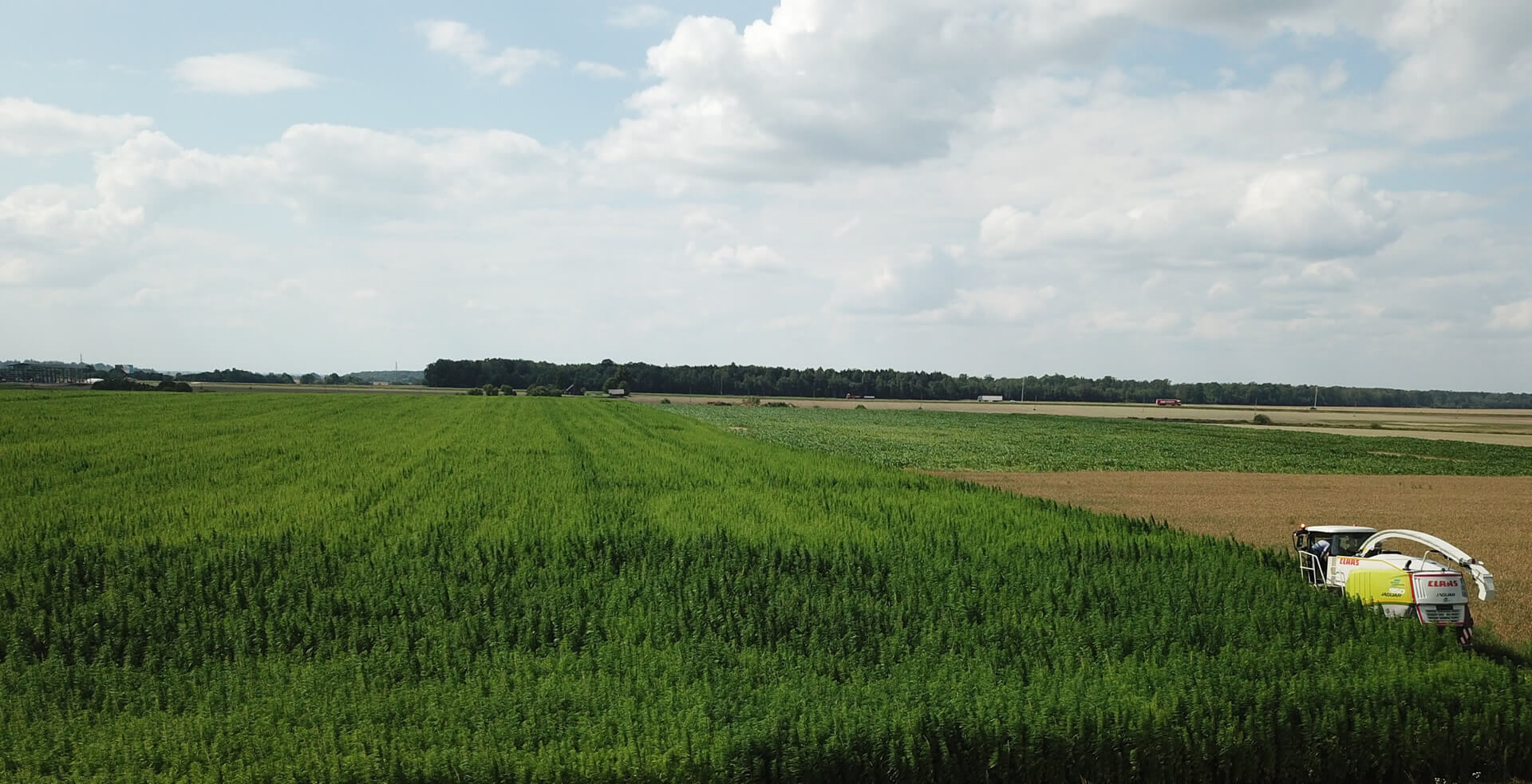The beginning of a new industry: now fiber, later textile

Fiber hemp stalk processing factory Natūralus Pluoštas (Natural Fiber) has already begun pilot production: first batches of hemp fiber have already been shipped to clients in Slovakia and the Czech Republic. However, the company’s ultimate goal is to produce textiles from hemp.
They already-built factory will be officially opened in Kėdainiai FEZ at the end of April and will be fully operational by the end of the year.
‘The factory is ready to recycle any amount, but for now the issue of getting raw materials is sensitive to us. Foreign suppliers of stalks are far away, we do not want to bring them from Belgium, France or Germany. Also, our position is to use local raw materials,’ says Raimondas Petreikis, CEO of Natūralus Pluoštas UAB.
The manufacturer has entered into hemp fiber supply contracts with Agrosfera, another company owned by the same shareholder Icor UAB.
The fiber produced in the factory is suitable for non-woven materials, hemp shives and pellets for the textile, automotive and paper industries as well as the construction and land sector. Once fully operational, the factory can recycle around 25,000 tons of hemp stalks.
‘At this stage, all the equipment we have available is not designed for the final, purified product. However, our goal is to produce textiles, and we are planning to achieve this goal within a few years,’ says the CEO.
There are no hemp-processing companies in the surrounding countries or the companies are very small, and the large French or German companies are not willing to share their experience. Thus, the new Lithuanian industry often has to rely on theoretical knowledge.
‘It is a fairly closed market so far, but the market will have to open up together with the rising demand,’ asserts Mr Petreikis.
According to him, hemp fabric is an environmentally friendly product whose manufacturing, unlike the processing of cotton, does not require aggressive agrochemicals and chemical preparations. And if the hemp fiber manages to seize at least a fraction of the market from cotton, it would be of a tremendous value.
‘But with our equipment it is not possible to be produced yet – additional lines are needed. Everything depends on the results of our efforts. I believe we will be able to invest in the manufacturing of the final product within several years. We have ideas on what to do next, but firstly we need to secure a strong financial footing,’ says the CEO.
Therefore, he emphasizes that currently the most important thing for the company is stable operation and the ability to ensure quantities and steady quality.
The company has the capacities to manufacture about 8,000 t of hemp fiber per year.
A new breed
In Lithuania, hemp stalks have not been processed so far – only one small company operates in Latvia. However, according to fiber hemp growers, supplying hemp to the Latvian factory is difficult due to transportation: the stems are required to be pressed into a square form, but no one in Lithuania uses such type of forms.
Furthermore, the hemp growing in Lithuania is not very suitable for fiber – it lacks height. Therefore, Agrosfera together with the Cannaba company owned by Icor has created a new breed of textile hemp. It allows having an extremely high – up to 35% – fiber content. The fiber content is expected to be further increased to 40%.
The fiber hemp which has a very wide range of applications was also noticed by the Ministry of Agriculture. The Project Selection Committee of the Lithuanian Rural Development Programme 2014–2020 allocated some of the EU investment to projects involving the manufacturing of products from fiber hemp.
In Lithuania, the growing of fiber hemp has been officially legal only since 1 January 2014 when the Law on Fiber Hemp came into force. In 2014, fiber hemp was grown in almost 1,063 ha, while in 2018 the area was 3,921 ha.
As already announced, about EUR 7 million were invested in the construction of the textile hemp fiber processing plant in Kėdainiai FEZ.
The area of the factory building is almost 5,000 sq. meters, while that of the warehouses – about 2,000 sq. meters. The entire area occupies 2.5 ha.
For now, the company has 7 employees. In total, approximately 30 positions are to be created as soon as full operational capacity is reached.